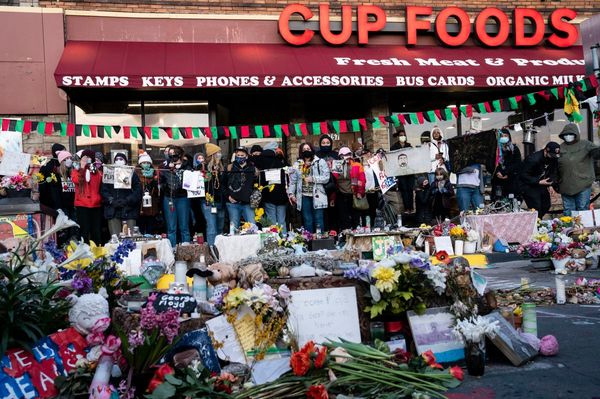
New York (AFP) - New York City Mayor Eric Adams is a rarity in Democratic politics -- a high-profile politician whose star has risen on the back of a tough anti-crime platform shunned by most on the progressive side of his party.
Adams, a former NYPD cop and opponent of the "defund the police" movement that has split Democrats, took office on January 1 pledging to crack down on violent crime.
Just weeks into his tenure, he is enjoying heightened support for his approach towards public safety following several high-profile killings, including the shooting deaths of two police officers.
That support will be clear when Adams meets US President Joe Biden -- who is under pressure over soaring crime in major cities nationwide -- in New York on Thursday to discuss strategies to combat gun crime.
"Adams has the high ground here for now due to these murders and the rise in the murder rate, even though the overall murder rate is still low by historical comparisons," Columbia University politics professor Robert Shapiro told AFP.
Adams acted quickly following the fatal shootings last month of officers Jason Rivera, 22, and Wilbert Mora, 27, who were responding to a domestic disturbance in Harlem.
Those deaths quickly followed the shooting of a 19-year-old Burger King worker during a robbery and the death of a 40-year-old Asian-American woman who was pushed onto subway tracks at Times Square by a homeless many suffering from psychiatric problems.
Adams announced a "blueprint for safety" that includes the return of a controversial anti-crime unit that was disbanded in August 2020 following the massive racial justice protests that swept the United States.
The mayor has said the re-branded "Neighborhood Safety Teams" will be different from the former plain-clothed unit that were marred by allegations of police brutality, particularly against young Black and Hispanic New Yorkers.
Adams's plan to end gun violence also proposes lowering the age of criminal responsibility for gun possession to 16 or 17 from 18, a move that would need to be approved by New York state lawmakers.
He also wants judges to be allowed to use greater discretion when navigating a 2019 bail law that scrapped pre-trial detention for many offenses.
Jeffrey Butts, a criminal justice expert at John Jay College, says that while these two policies "could be politically appealing for the moment," they are "unlikely to improve public safety."
'Defund under pressure'
Adams, who is Black and fought racism within the New York Police Department during his 22-year career, is a centrist who defeated progressive rivals for the mayoral job.
The deaths of the two police officers came against the backdrop of competing ideologies within the Democratic Party over how to deal with crime.
Following the fatal shootings, Manhattan's new prosecutor Alvin Bragg, who is a progressive, announced a tougher stance on guns after campaigning on lenient policies and initially saying his office would stop seeking prison terms in some cases.
New York state Governor Kathy Hochul has thrown her support behind Adams's approach as have more than 200 business leaders, including the CEOs of JPMorgan and Pfizer.
Crime poses a tricky dilemma for the Democrats heading into congressional mid-term elections in November.
Biden faces pressure from the right, which blames him for presiding over rising crime, and from the left, which has campaigned for police reforms -- at times, going as far as the "defund the police" movement.
For now, it is Adams's stance that Biden and senior Democrats are coalescing around, with the defund movement seemingly on the slide 18 months after the demonstrations over the police murder of African-American George Floyd.
"The defund movement is in decline given concerns about crime and public safety.The gun situation in the city has to be dealt with," said Shapiro.
Criminal justice experts insist though that the answer is somewhere in the middle: back public safety, particularly in Black communities which suffer disproportionately from violent crime, while reforming police practices.
"I don't think the movement nor the sentiment towards racial justice...has died, but rather remains a latent but still significant part of our politics," said Rutgers University political science professor Saladin Ambar.
"Adams would be wise not to dismiss its power going forward."







